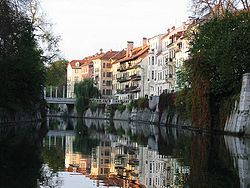|
Submission
15 March 2009 (extended)
Notification
22 April 2009 30 April 2009
Camera-ready
copies
8 May 2009 15 May 2009
Early
registration deadline
5 June 2009
Late
breaking papers
1 June 2009
Workshop
22 - 24 June 2009
|
From
Ken
Forbus's
survey for the CRC Handbook of Computer Science and
Engineering
(paper):
Qualitative reasoning is the area of AI which creates representations
for continuous aspects of the world, such as space, time, and
quantity, which support reasoning with very little information.
Typically it has focused on scientific and engineering domains, hence
its other name, qualitative physics. It is motivated by two
observations. First, people draw useful and subtle conclusions about
the physical world without differential equations. In our daily lives
we figure out what is happening around us and how we can affect it,
working with far less data, and less precise data, than would be
required to use traditional, purely quantitative methods. Creating
software for robots that operate in unconstrained environments and
modeling human cognition requires understanding how this can be
done. Second, scientists and engineers appear to use qualitative
reasoning when initially understanding a problem, when setting up more
formal methods to solve particular problems, and when interpreting the
results of quantitative simulations, calculations, or
measurements. Thus advances in qualitative physics should lead to the
creation of more flexible software that can help engineers and
scientists.
Current research spans all aspects of the theory and
applications
of qualitative reasoning about physical systems.
- Cognitive modeling (e.g.,
cognitive theories of reasoning about physical systems, theories and
experiments concerning human reasoning and learning of mental models,
QR models for spatial reasoning, cognitive maps, cognitive robots);
- Techniques (e.g., qualitative
simulation, ontologies, management of multiple models, reasoning over
time and space, mathematical formalizations of QR, qualitative
algebras, qualitative dynamics, qualitative kinematics, qualitative
optimization);
- Task-level reasoning (e.g.,
design, planning, monitoring, diagnosis and repair, explanation,
tutoring and training, process control and supervision);
- Applications (e.g., engineering,
education, business, biology, chemistry, ecology, economics, social
science, environmental science, medicine, and law);
- Intersection with other modeling
approaches (e.g., system dynamics and bond-graphs, signal processing,
numerical methods, statistical techniques, differential equations);
- Knowledge acquisition methods
(e.g., model building tools and techniques, automated model
construction and machine learning, acquisition of models from data).
- Theoretical foundations of
qualitative reasoning techniques.
Here are a few ways to get started learning more about
what's going on in QR these days:
- AAAI Introductory pages: Qualitative
Reasoning
- The 2005, 2006, and 2007 workshops: QR 05, QR 06,
QR
07, and QR 08.
- Archive of previous QR workshops: 1987-2004
- Special issue of AI Magazine: Winter
2003
- Current Topics in Qualitative Reasoning,
Editorial Introduction by Bert Bredeweg and Peter Struss.
- Model-Based Systems in the Automotive Industry,
by Peter Struss and Chris Price.
- Qualitative Modeling in Education, by Bert
Bredeweg and Ken Forbus.
- Qualitative Spatial Reasoning Extracting and
Reasoning with Spatial Aggregates, by Chris Bailey-Kellogg and Feng
Zhao.
- Model-Based Programming of Fault-Aware Systems,
by Brian C. Williams, Michel D. Ingham, Seung Chung, Paul Elliott,
Michael Hofbaur, and Gregory T. Sullivan.
- Qualitative Reasoning about Population and
Community Ecology, by Paulo Salles and Bert Bredeweg.
- Mathematical Foundations of Qualitative
Reasoning, by Louise Trave-Massuyes, Liliana Ironi, and Philippe Dague.
- Learning Qualitative Models, by Ivan Bratko and
Dorian Suc.
- Model-Based Computing for Design and Control of
Reconfigurable Systems, by Markus P. J. Fromherz, Daniel G. Bobrow, and
Johan de Kleer.
|



